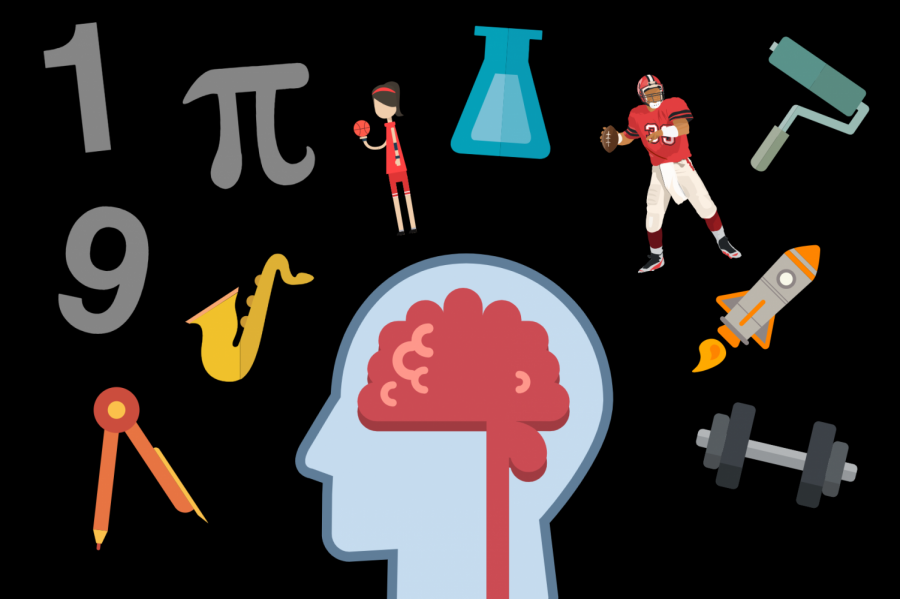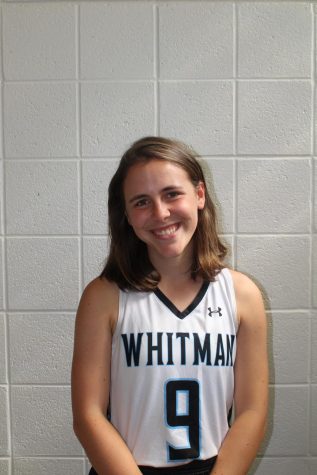Why you shouldn’t limit yourself to an academic specialty
April 13, 2019
To my family and the rest of the world, I’ve always been a “humanities person.” When I was younger, I’d spend the entire day devouring book after book. I dreamed of being an author like my idol J.K. Rowling, and I started skimming the front page of the newspaper every morning before my feet could even touch the floor under my kitchen table.
But I’ve also always loved math. I find it satisfying to work through a problem logically toward one answer, either right or wrong. I learned in middle school that I had a knack for trigonometry and, call me a nerd, but I found the proofs to be really fun. I always start my math homework first, and it’s consistently one of my favorite classes every year.
But when picking my junior year classes, I chose to take Calculus AB instead of BC. After all, I’m a humanities person—it would be better for me to beef up my schedule with classes that fit with my academic profile, like AP Lang and The Black & White. Right?
Wrong. Kids are taught from a young age that they are either the humanities or STEM type, and those labels usually stick for the rest of their academic lives. But these categories aren’t necessary, and they often stifle diversity in students’ interests. Most people I know are interested in a variety of subjects, but they tailor their course load to what they deem to be their defining academic strength—just like I did with my math class.
Students also feel the need to specialize in one area to create a “spike” for their college applications—an academic hook that defines who you are as a student. On all my college tours, the admissions officers repeatedly emphasized “quality over quantity” when discussing extracurricular activities. But rather than producing the intended effect of preventing students from overloading, this emphasis only discourages students from trying new activities. If you only have time to invest energy in a few “quality” extracurriculars, why waste time on a new hobby?
The “specialization” approach fails to recognize the importance of well-roundedness. Adding depth to your scope of knowledge allows you to understand the basis of a variety of issues and approach situations from multiple perspectives. And with an increasingly interdisciplinary workforce, people are starting to recognize the disadvantages of limiting themselves to just one academic specialty; a focus on interdisciplinarity in collegiate research, teaching and degree options is growing exponentially, according to a 2015 article from the international science journal Nature.
So for those college and career-focused students, being well-rounded sets you up for a successful future! Some of the most impactful people of our era have more than one specialty. Tesla CEO and multi billionaire entrepreneur Elon Musk has degrees in both economics and physics and is a self-taught engineer; the late Maya Angelou was a dancer and performer before she became a world-renowned civil rights activist and writer.
So next time you’re thinking of mixing in an AP science course with your humanities-loaded schedule or trying out a new language to balance with your NIH internship, go for it! I’m probably going to take Multivariable Calculus next year even though I’ll have to juggle a harder schedule, and honestly, I’m psyched. High school is one of the most ideal times to try to new things—take advantage of it.











Aseel Charkie • Feb 14, 2020 at 2:50 pm
I don’t go to this school
I ain’t even American lmao
I don’t live here
But great article bro
Dr. Jim Robinson, sr. • Apr 16, 2019 at 12:29 pm
This speaks to The value of a “True” Liberal Arts education i.e. one which encompasses the humanities as well as math and science. Unfortunately, the prerequisites required for many post-graduate programs, make obtaining such a well-rounded undergraduate college experience difficult.